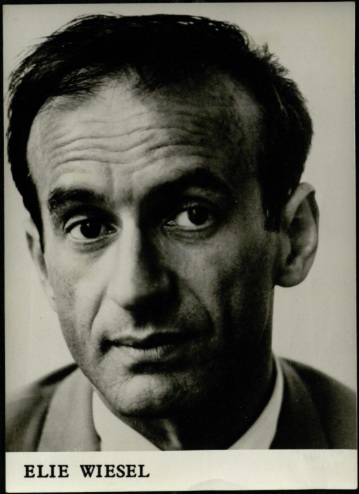Elie Wiesel

Elie Wiesel was a writer, Boston University professor, political activist, Nobel laureate, and Holocaust survivor, who donated his personal papers to the University in 1990.
His papers measure 570 linear feet and includes manuscripts for his memoirs, novels, plays, poetry, journalism, lectures, speeches, and non-fiction, as well as correspondence, audio/visual recordings, photographs, research material, printed items, awards, and many other materials, in Yiddish, French, English, and Hebrew. The material ranges from Wiesel’s post-war years in France as a journalist through his career as an author, public speaker, human rights advocate, Nobel laureate, educator, and lecturer. In addition to Elie Wiesel’s personal papers, the collection includes records regarding the Elie Wiesel Foundation for Humanity, the US Holocaust Memorial Council, the US Holocaust Memorial Museum, and the Academie Universelle des Cultures.
View the detailed Finding Aid to the Elie Wiesel Papers and explore recordings of many of Professor Elie Wiesel’s public lectures and remarks at BU available online in the Boston University Digital Library.
In addition to the Wiesel Papers at Boston University Libraries, the Elie Wiesel Memorial House in Sighetu Marmației, Romania commemorates Elie Wiesel’s birthplace; the 92nd St Y hosts The Elie Wiesel Living Archive; Gratz College is home to the Elie Wiesel Digital Archive; and the Florida Holocaust Museum will become the home of the papers digitized by Gratz College.
Boston University is also the home of the Elie Wiesel Center for Jewish Studies and it is through the center that students and the BU community engage explore the rich and diverse dimensions of Jewish history, religion, and culture as well as Holocaust, Genocide, and Human Rights Studies and Israel Studies.